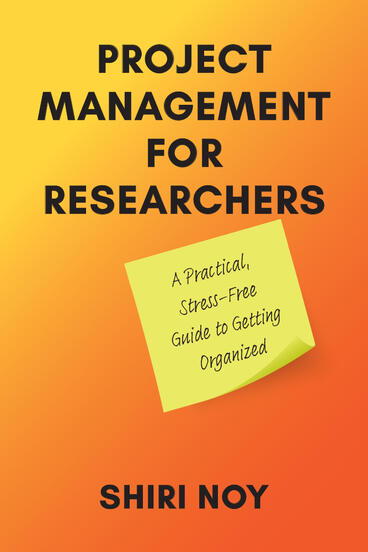Project Management for Researchers
A Practical, Stress-Free Guide to Getting Organized
A step-by-step guide to developing a research organization system that works for you
Description
Learning how to organize and manage research is important for both the researcher and for advancing research. However, graduate students are often trained in theories, methods, and disciplines, but rarely in the organizational, administrative, and metacognitive skills required to manage research projects. Moreover, several disciplines are decrying a reproducibility crisis, with a concerted academic push toward open-access approaches. By clearly organizing research, graduate students and researchers can ensure that they are able to account for their methodological, theoretical, and other research decisions: to reviewers, to funding agencies, and to support the development of new ideas and exciting offshoots of projects.
Project Management for Researchers tackles the how, what, and why of project management. It offers step-by-step guidance on choosing tools and developing a personalized system that will help the reader manage and organize their research so that steps and decisions are documented for accountability and reproducibility. Readers will find worksheets they can adapt to their own needs, priorities, and research as well as practical tips on issues ranging from emails to scheduling. Suitable for work across methods, experience levels, and disciplines and adaptable for those working alone, with others, or as team managers, this book will guide readers between various research stages–from planning, to execution, to adjustment of research projects big and small.
Shiri Noy is Associate Professor of Sociology at Denison University.
Reviews
“This book will help beginning (and advanced) researchers improve their management of time, resources, money, data and the myriad other details that need to be attended to for a successful outcome. It will revolutionize its subject area and I only wish I had this book earlier in my own career, and for the many graduate students I have taught over the years.”
- Kristin Luker, University of California, Berkeley

